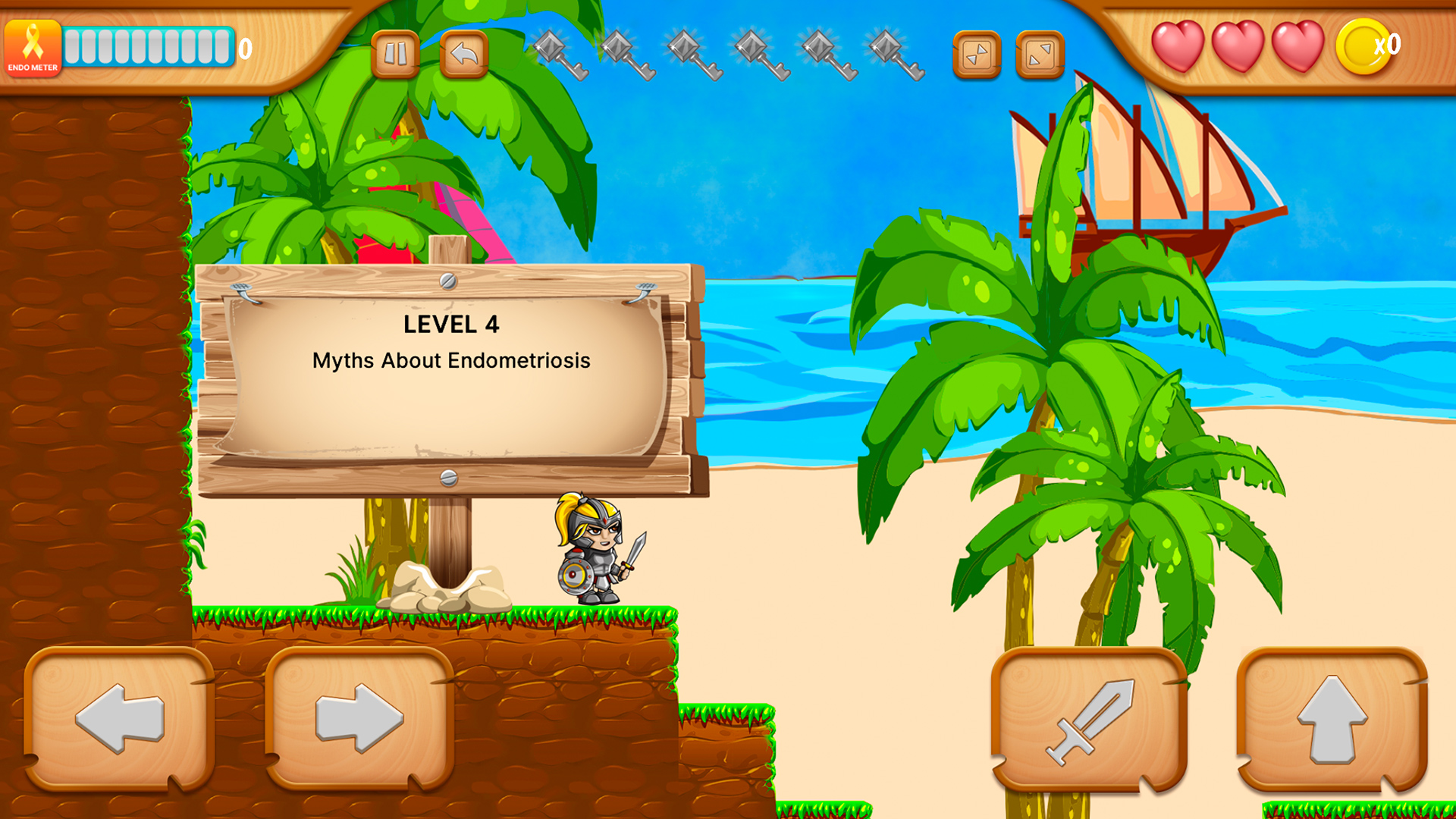
Level 4: Myths About Endometriosis
Information Booth 1
Myths about Endometriosis
There are far too many myths that need debunking when it comes to endometriosis. Here are the most common myths with explanations to debunk them.
Myth 1: Painful periods are normal
Some cramping, mild pain, and discomfort during menstrual periods is normal.
However, excessive pain that causes you to regularly miss school, work or perform your daily activities is not normal.
Women with endometriosis sometimes assume that their symptoms are a normal part of menstruation.
So, when they seek medical assistance they are often dismissed and are told that it’s just painful periods and that is normal, and it’s all in your head, so just brave up and deal with it.
But in fact, something so much more serious is going on than just period cramps.
Information Booth 2
Myth 2: Women with endometriosis only suffer pain during their period, and only have heavy periods.
This is not the case. Pain from endometriosis can be intermittent or ongoing.
Occasionally, it also occurs during or after sexual activity, it can occur before or after a woman’s period, and it is extremely painful during the time of ovulation.
The level of pain varies and is not defined by the stages of endometriosis.
Women with endometriosis have light periods as well as heavy ones. A sister condition to endometriosis called adenomyosis is more likely to cause heavy periods.
Information Booth 3
Myth 3: Teenagers don't suffer from endometriosis
Many teens suffer symptoms when they start menstruation, and this is where the misdiagnosis comes in.
If endometriosis is detected early, at the onset of your first period, with the right treatment or the right surgery plan, it can be a complete game changer for a teenager or a woman’s livelihood.
Information Booth 4
Myth 4: Endometriosis only affects Caucasian women between 20 and 40
Today, gynecologists understand that endometriosis can affect anyone of any race or gender, at any age. Knowing this helps break the myth and ensures no one is overlooked.
Endometriosis is not sex-specific, it is hormone-dependent, so this condition can potentially affect anyone.
Information Booth 5
Myth 5: Pregnancy & Hysterectomy cures Endometriosis
Many women are told by their gynaecologists to get pregnant, and endometriosis will be cured.
Hormones vary during pregnancy, sometimes alleviating symptoms in some individuals. Progesterone increases, but so does the form of estrogen called Estriol. Additionally, so does prolactin. Any number of these changes can cause a change in symptoms.
But it’s not a cure, and the pain will almost certainly come back after you give birth and stop breastfeeding.
If Endometriosis isn’t on the uterus, then a hysterectomy won’t cure it.
Information Booth 6
Myth 6: Endometriosis improves after menopause
Although endometriosis symptoms occur most often during the reproductive years for many women, they can last well after the cycle ends, leading into your menopause.
